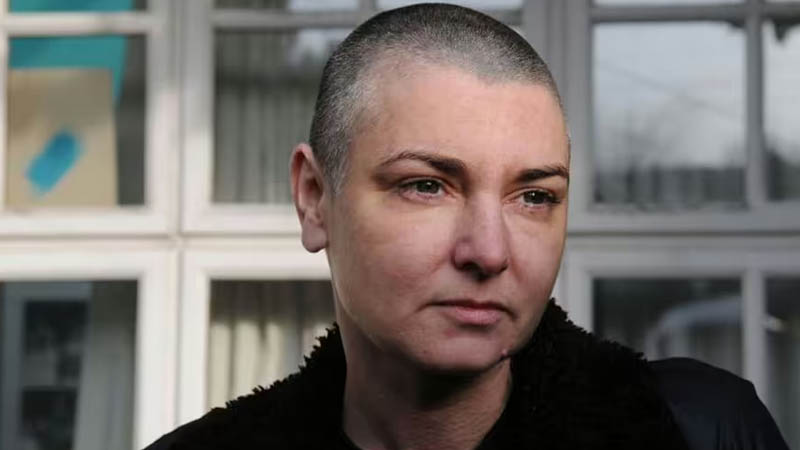Famous singer Sinéad O’Connor’s exact cause of death has been revealed one year after her passing. Despite earlier claims from Southwark Coroner’s Court that she died from “natural causes,” the precise reason for her death has now been confirmed.
Sinéad O’Connor, renowned for her hit song “Nothing Compares 2 U,” faced a turbulent career, notably affected by a controversial incident on “Saturday Night Live.” According to reports, O’Connor’s death certificate, filed by her ex-husband John Reynolds, indicates that she succumbed to chronic obstructive pulmonary disease (COPD) and asthma. Additionally, a respiratory tract infection contributed to her demise.
Her death was certified by Julian Morris, the senior coroner for Inner South London, following a post-mortem examination which concluded without the need for an inquest. In January, The Blast reported that a representative for Southwark Coroner’s Court in London stated that the “Nothing Compares 2 U” singer died “of natural causes,” leading the coroner to conclude their investigation into her death.
O’Connor passed away on July 26, 2023, at the age of 56. Police confirmed that the iconic Irish singer was found “unresponsive” in a London apartment and was “pronounced dead at the scene.” In a statement to RTÉ, her family shared: “It is with great sadness that we announce the passing of our beloved Sinéad”, told Page Six.
Her death followed a period of profound grief after the suicide of her 17-year-old son, Shane, in June 2022, prompting her to cancel all music engagements to prioritize her health. At the time, her management team announced, “We would like to respectfully announce that due to continuing grief over the tragic loss of her beloved son Shane earlier this year, Sinead O’Connor will not be performing live in 2022.” They expressed deep gratitude to her friends and fans for their support, adding, “Thank you to Sinead’s friends and fans whose support and understanding we hold in the highest esteem throughout this period. The love being shown has been a source of great comfort and peace for Sinead.”
Following her son’s passing, the “Drink Before the War” singer paid tribute to Shane on Instagram, writing that her “very light of my life” had ended his earthly struggle and was now with God. She expressed hope that her “baby” was finally at peace. O’Connor is survived by her three other children: Jake, 37; Roisin, 28; and Yeshua, 17.
O’Connor’s career faced significant challenges due to an incident on “Saturday Night Live,” during which she tore a photo of Pope John Paul II. The shocking event occurred during her performance of Bob Marley’s “War” in 1992, a protest against the Catholic Church, which led to her permanent ban from the show and significant backlash that derailed her career. Despite this, she received acclaim for speaking up on significant issues despite public opposition.
Born Catholic, O’Connor converted to Islam in 2018 and changed her name to Shuhada’ Davitt. Before her passing, she faced significant mental health challenges, alarming fans in 2015 with a cryptic post about overdosing. She wrote, “This week has broken me. The last two nights finished me off. I have taken an overdose. There is no other way to get respect. I am not at home, I’m at a hotel, somewhere in Ireland, under another name.” The following year, she was reported missing but later dismissed reports of a suicide attempt as “false and malicious gossip,” asserting that she was “far too f-cking happy” for that.
Recently, the National Wax Museum announced the removal of its O’Connor figure, promising a “more accurate representation” after fans criticized the waxwork’s lack of resemblance to the music icon. Following a meeting, the museum’s team admitted, “We can do better.”
Sinéad O’Connor’s cause of death has finally been revealed, exactly one year since the beloved Irish singer died after being found “unresponsive” in her London apartment. O’Connor died of a combination of COPD and asthma, the Irish Independent reported. The 56-year-old songstress was also battling a respiratory tract infection at the time of her passing.



